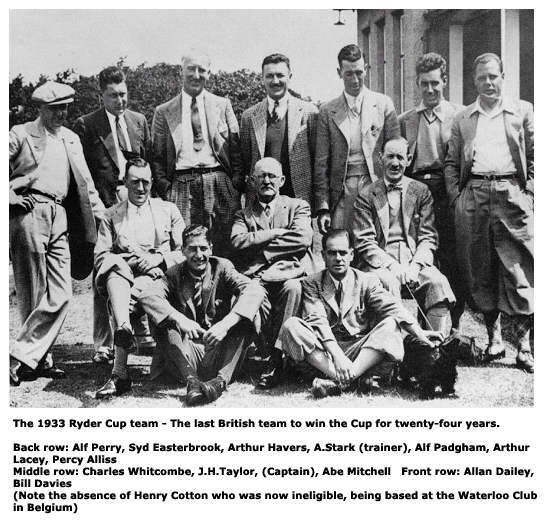|

Arsenal were Football League champions in 1933, but were dumped out
of the FA Cup in the third round by a midland club not far from
Brand Hall, Third-Division Walsall. It was one of the greatest Cup
upsets of all time. Arsenal, dubbed by the press, the ‘Bank of
England’ team, had cost £30,000 – Walsall just £69. Arsenal’s costly
imports were written of as enjoying “champagne, gold and electrical
massage in an atmosphere of prima donna preciousness”, whereas
“Walsall men eat fish and chips and drink beer”. At a time of severe
unemployment in the Midlands and the North, the result was received
with widespread rejoicing. The writer would not have believed that
sixty years later imports would come from far and wide at an
astronomical cost, or what today’s precious prima donnas would enjoy
and would be allowed to get away with. The standard of behaviour
expected of a player was somewhat stricter back then. The Arsenal
left-back, Tommy Black, gave away a penalty with a bad and
gratuitous foul, from which Walsall scored their second goal. Black
was immediately put on the transfer list!
In the Cup Final Dixie Dean scored for Everton in a 3-0 victory over
Manchester City to complete a hat trick of successes – they had won
the Second division championship in 1931 followed by the First
Division title in 1932. It was the second time they had won the FA
Cup; the first was back in 1906 and they had not reached the final
since 1907. The Wembley receipts totalled £24,831-6s from the 92,950
spectators who watched that 1933 Final, in which numbered shirts
were worn for the first time; Everton being numbered from 1 (the
goalkeeper) to 11 and City from 12 to 22 (the keeper). Fittingly the
first man to wear a number 9 shirt was Dixie Dean, “ --- the
greatest centre-forward there will ever be”, in the words of Bill
Shankly. (Wearing the number 19 shirt was City captain Matt Busby).
The Duchess of York, later to be Queen Elizabeth, presented the cup
to Dixie, the Everton captain. During the match the Lord Mayor of
Liverpool had pointed out that he was the No 9; she replied:
“Even I know Dean!”
After the war Dixie was Landlord of the ‘Dublin Packet’ pub in
Chester for 15 years. He died in 1980 – at Everton’s Goodison Park –
minutes after the final whistle of a derby match with Liverpool.
NEXT |